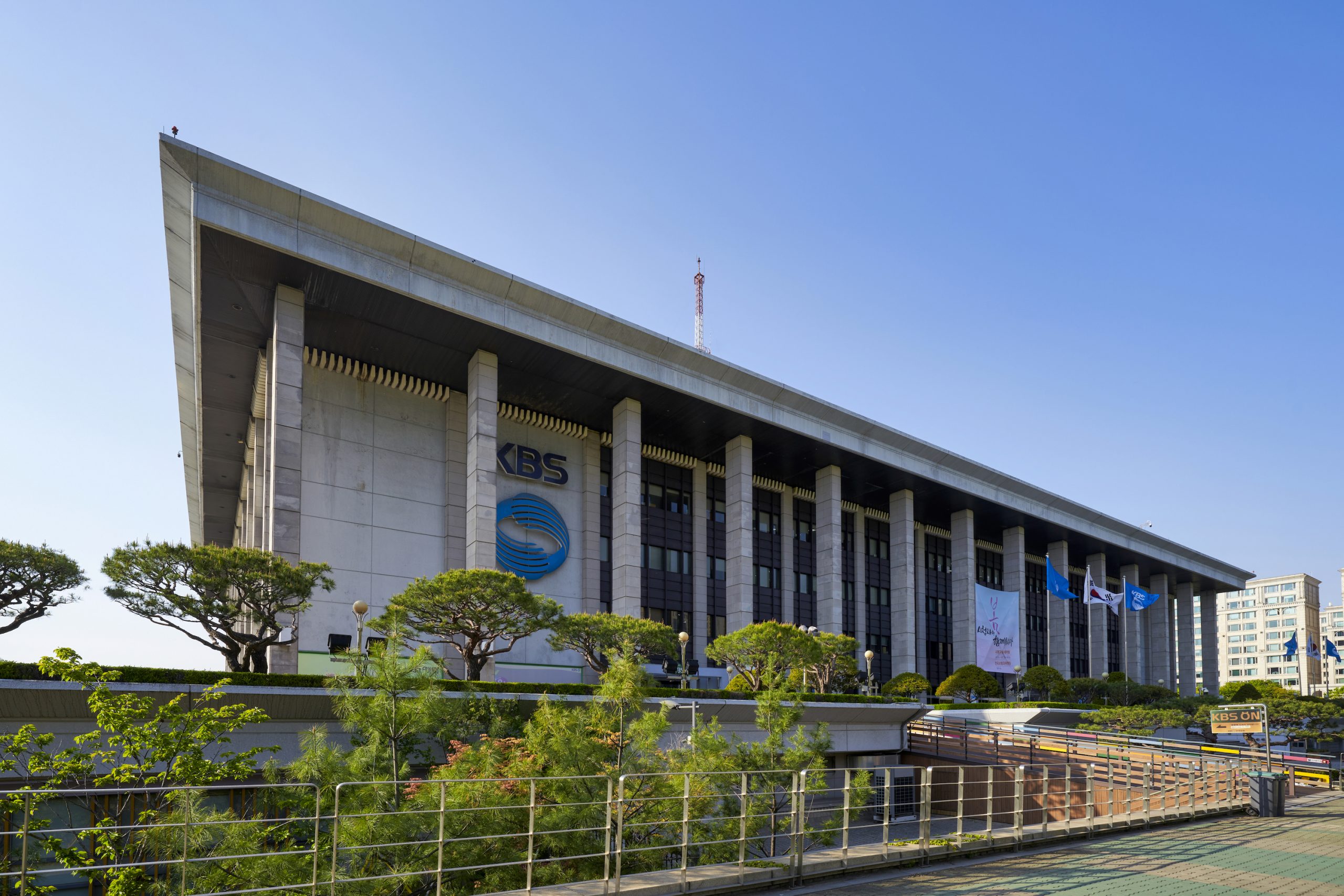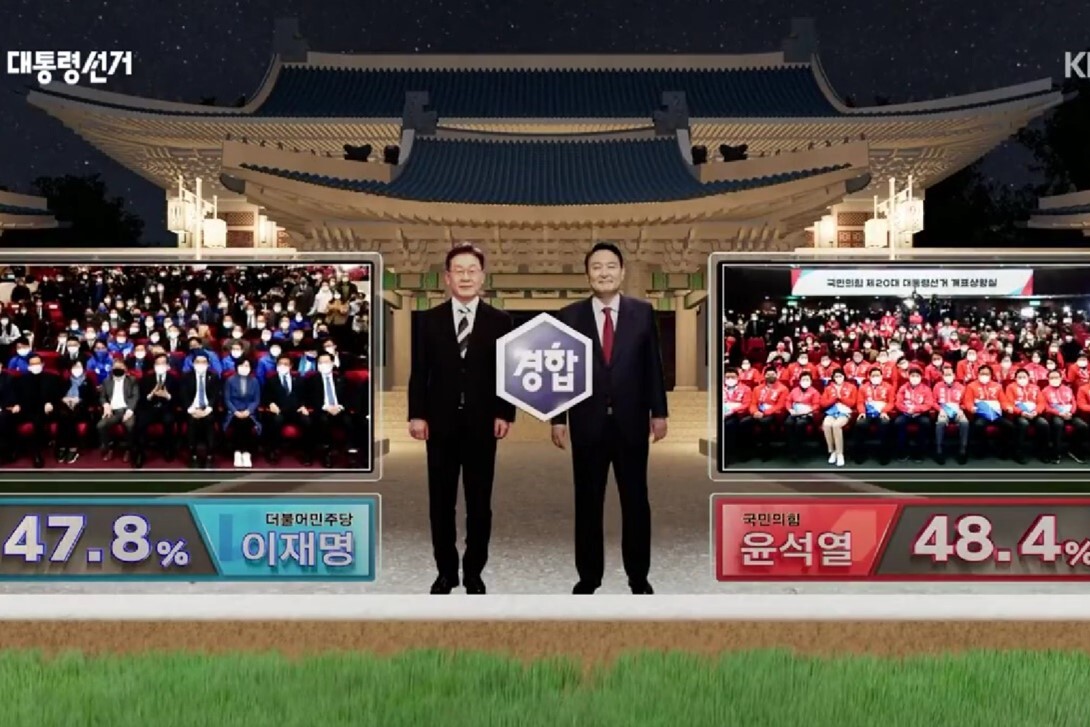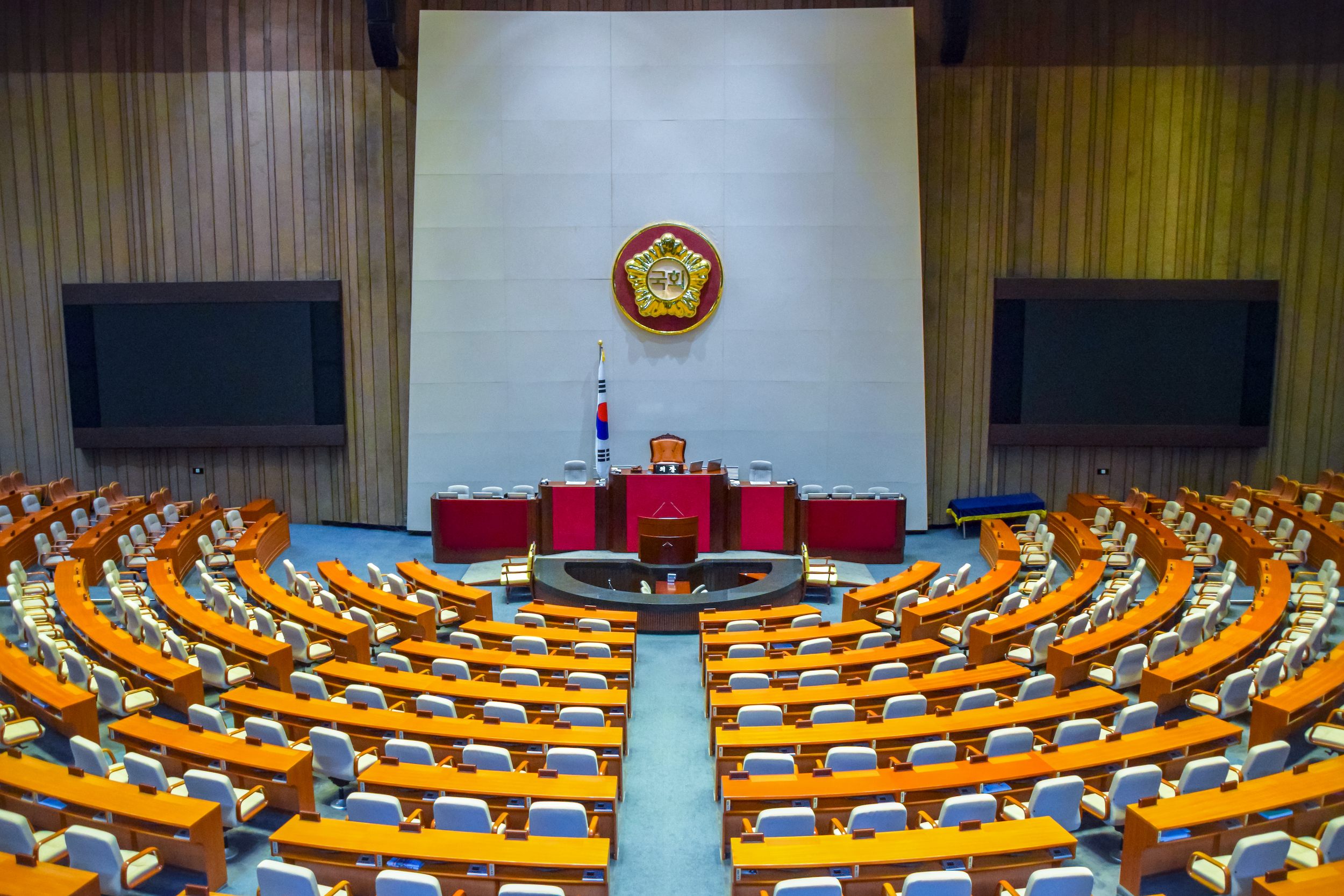South Korea: Proposed PSM independence reforms and press freedom concerns
21st December 2022
Attempts to strengthen the independence of South Korea’s public media are taking place against a backdrop of recent media freedom and journalist safety concerns.

A bill that proposes major reforms to the governance of the public media organisations of South Korea was passed by the parliamentary broadcasting and communications subcommittee on 2 December.
Under the proposed ‘Public Media Governance Act’, a 100-member committee, that would be representative of various ages, genders and regions of the public, would be formed to provide recommendations for the presidents of the country’s two national public media organisations, Korean Broadcasting System (KBS) and Munhwa Broadcasting Corporation (MBC), and education-based Educational Broadcasting System (EBS).
Read more: KBS uses “cutting edge technology” in 2022 election coverage
The board of directors would also increase from 11 to 21 members. Currently, all board members are recommended by the Korea Communications Commission (KCC), a government department and regulatory body, and appointed by the National President. Seven members are unofficially recommended from the ruling party, and four from the opposition party. In the amendment, five recommendations for members would come from the National Assembly, six from the KCC, four from the Audience Council, and six from media-related groups.
There have been concerns in the past about the political vulnerability of South Korea’s public media organisations against the government of the day. Yet the proposed reforms have divided political opinion. The main opposition Democratic Party of Korea, which has a majority status in the broadcasting committee and the National Assembly, voted in favour of the revision bill, suggesting that the revisions “will prevent political influence in the appointments of the heads of public broadcasters”. However, the ruling People Power Party (PPP) boycotted the vote. An editorial by the Korea Herald also raised “questions about ulterior motives” with the Democratic Party pushing the bill through “unilaterally”.
There are also doubts as to whether the Act can even be implemented. “This is because the ruling and opposition parties have long disagreed over the methodology of electing the board of directors and president of public media, and even if the National Assembly makes a decision, the National President may exercise the right to veto the Act according to the Constitution,” a KBS spokesperson told PMA.
The public media revision bill will need to be reviewed by the parliamentary legislative and judiciary committee at the National Assembly. If they fail to pass it within 60 days, it could be put to the vote at a plenary session.
Press freedom concerns
The proposed public media reforms come amid reports of growing hostility towards MBC by South Korea’s President Yoon Suk-yeol in recent months. President Yoon accused the MBC of “causing serious harm to national interests” after it broadcast footage of him appearing to insult US President Joe Biden at a United Nations General Assembly on 22 September. Other incidents include the President’s office banning MBC journalists on 9 November from boarding the presidential plane ahead of his trip to attend the G20 and ASEAN summits, and suspending the president’s regular media briefings after President Yoon was questioned by an MBC reporter about the MBC ban.
According to Reporters without Borders, four of MBC’s senior executives have been sued for defamation by the Seoul Metropolitan Council run by the PPP, and one MBC journalist received online death threats while covering the presidential office’s activities.
Various local media freedom and journalism groups have condemned these recent discriminatory measures. “The Republic of Korea has a proud history of democracy and press freedom that must be defended. President Yoon’s continued targeting of MBC sets a dangerous precedent,” the International Federation of Journalists wrote in a statement. RSF also called out its concerns regarding the president’s hostility towards MBC: “Under no circumstances should a head of state decide which media can report on their activity, how they report and which questions are suitable to be asked. Journalists have an essential role to play in democracies and should not be blamed for asking difficult questions, as these are meant to serve the public interest.”
South Korea currently ranks 43rd in the 2022 RSF World Press Freedom Index. It is feared that further political attempts to control freedom of expression, restrict press freedom and intimidate public media could pose a threat to the vital role of independent public interest media in informing democracy.
In 2023, KBS will celebrate 50 years of public service broadcasting. PMA believes it is healthy to regularly review broadcasting legislation to ensure that public media remains relevant and fit for purpose within an ever-evolving media landscape, not least to ensure that editorial independence remains protected. But any proposals to reform the leadership appointments process of a public media system should still be done in association and consultation with public media and communications experts, rather than unilaterally or to benefit the government of the day.
Related Posts
19th April 2022
KBS uses “cutting edge technology” in 2022 election coverage
South Korea’s largest and most trusted…
25th February 2022
KBS’ Covid-19 emergency broadcasting helps country’s pandemic response
The Korean Broadcasting System’s (KBS)…
8th October 2021
Update: South Korean lawmakers back down on controversial ‘fake news’ bill
The Public Media Alliance welcomes…
12th May 2020
Global Task Force for public media welcomes South Korea’s KBS
The Global Task Force for public media…


